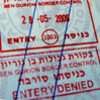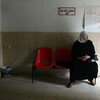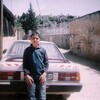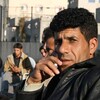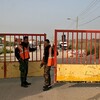
Vital Gaza food conduit to open, Israel says
6 December 2006
An important commercial crossing from Israel into the Gaza Strip could be re-opened next week, Israeli officials told IRIN, allowing vital food supplies into Gaza. The Karni crossing to the west of Gaza City is the only cargo terminal designed for the passage of large containers into the Strip and as such is vital for food supplies. It has been closed almost constantly since September, according to John Ging, the head of the United Nations Relief and Works Agency (UNRWA), which feeds 860,000 refugees in Gaza.”There’s no substitute for the [Karni] commercial crossing. There is no comparable alternative in terms of quantity. That is the weakness of the Gaza Strip. We are talking about hundreds of containers,” said Ging. Read more about Vital Gaza food conduit to open, Israel says

